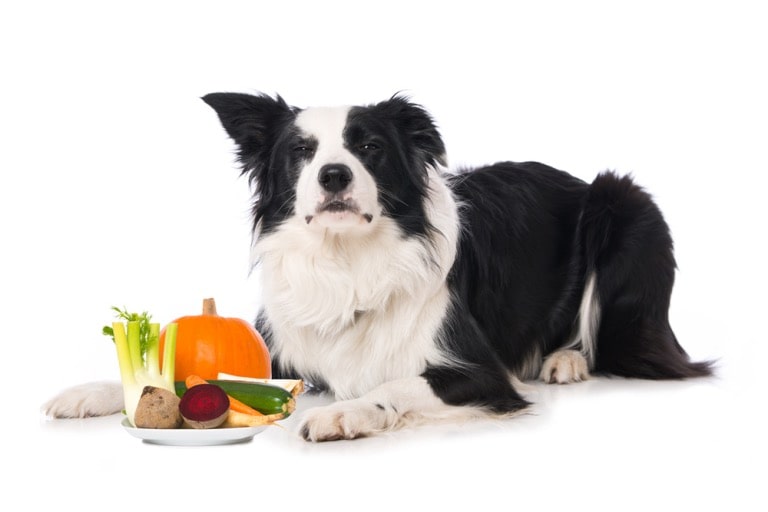The Importance of a Balanced Diet for Dogs

Ensuring that your dog receives a balanced diet is crucial for their overall health and well-being. Everything from their coat to their energy levels largely depends on the quality of their nutrition. High-quality dog food options can make a substantial difference in your pet’s life.
Options noted in various Badlands Ranch Dog Food Reviews emphasize the importance of a top-tier diet. A well-nourished dog enjoys a healthy coat, better energy levels, and overall enhanced well-being.
A proper diet includes a mix of proteins, carbohydrates, fats, vitamins, and minerals, all working synergistically to keep your dog in prime health. When considering the right food for your pet, it’s essential to look for ingredients that fit the nutritional profile necessary for their specific needs.
Puppies, adult dogs, and senior dogs have different requirements, as do dogs with health conditions or higher activity levels. Incorrect or insufficient nutrition can lead to various health issues, including obesity, malnutrition, and chronic illnesses.
Key Nutritional Requirements
Understanding your dog’s nutritional requirements is the first step toward optimal health. Knowing what makes up a balanced diet for dogs can be a game changer. Proteins are critical for muscle development and repair, and they can be sourced from a variety of meats, fish, and legumes. According to the American Kennel Club, proteins should form a significant part of your dog’s diet.
Fats, often sourced from fish oils or poultry fat, provide the energy necessary for your dog’s daily activities and are crucial for hormone production and brain health. Carbohydrates, which can be derived from grains like rice or oats, are also important for digestion and sustained energy.
Vitamins and minerals, sourced from fruits, vegetables, and grains, support various bodily functions, including immune response, bone health, and cellular repair. It’s about providing a diet where all these components are balanced effectively, ensuring your dog gets a full spectrum of nutrients.
Common Myths About Dog Food
Dog food myths are widespread and can often mislead pet owners into making incorrect dietary choices. One such myth is that dogs can only thrive on raw food diets. While raw food has its benefits, it isn’t universally suitable.
Each dog has its unique needs, and raw diets may sometimes lack essential nutrients if not balanced correctly. Another prevalent myth is the superiority of grain-free diets. Many veterinarians recommend against grain-free diets unless there’s a specific health issue, as grains are a valuable source of fiber and nutrients.
Other myths include the notion that all commercial dog foods are unhealthy. While some lower-quality commercial foods do contain fillers and artificial preservatives, there are reputable brands that offer high-quality, nutritious options.
These foods are often tailor-made for various needs, age groups, and breeds, providing balanced nutrients that a homemade diet might lack. By debunking these myths, pet owners can make more informed choices about their dog’s nutrition.
Signs of Poor Nutrition
Identifying signs of poor nutrition can help prevent severe health issues for your dog. Symptoms often include a dull or dry coat, lethargy, frequent infections, and digestive problems such as diarrhea or constipation.
Behavioral changes like excessive chewing or licking can also be a sign of nutrient deficiencies or food intolerances. Recognizing these signs early can make a significant difference in your dog’s health and well-being.
If you notice any of these symptoms, it’s crucial to consult with your veterinarian. They can help you adjust your dog’s diet to ensure that it is nutritionally complete and balanced. Addressing nutritional deficiencies promptly can improve your dog’s quality of life and prevent long-term health issues.
DIY Dog Food Recipes and Tips
Making your own dog food can be a rewarding way to ensure your canine gets the best nutrition possible. This process allows you to control the quality of the ingredients and adapt recipes to your pet’s specific needs. Here are some tips to get you started:
● Ensure a balanced mix of proteins, carbohydrates, and fats in every meal. For example, a meal can include lean meats such as chicken, turkey, and fish combined with vegetables and grains.
● Incorporate vegetables like carrots, peas, and sweet potatoes to provide essential vitamins and minerals. These veggies are not only nutritious but also appealing to many dogs.
● Include healthy fats such as fish oil or flaxseed oil. These fats aid in maintaining a shiny coat and supporting cognitive functions.
● Prepare meals in bulk and store them properly to make the process manageable. This can also help you maintain consistency in your dog’s diet.
It’s essential to avoid ingredients that can be toxic to dogs, such as onions, garlic, chocolate, and certain nuts. Always consult your veterinarian before switching to a homemade diet to ensure it meets your dog’s unique nutritional needs. This extra step can provide peace of mind and ensure your pet remains healthy and happy.
Maintaining Optimal Dog Health
Focusing on optimal dog nutrition is essential for your furry friend’s health and happiness. By understanding their nutritional needs, debunking common myths, and recognizing signs of poor nutrition, you can ensure they lead a long, active life.
DIY dog food can be a healthy and cost-effective way to feed your pet, provided it’s done correctly and with proper veterinary guidance. A well-nourished dog is a happy dog, and investing time and effort into their diet is one of the best ways you can show your love and care.


